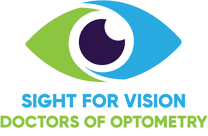
Your eyesight plays a vital role in nearly every part of your daily life, from driving to working and enjoying time with loved ones. But certain eye conditions, like glaucoma, can slowly threaten your vision without you even realizing it. Known as the “silent thief of sight,” glaucoma often develops gradually and without obvious symptoms in its early stages. Left untreated, it can lead to irreversible vision loss and have a serious impact on your independence and quality of life.
What Is Glaucoma?
Glaucoma is a group of eye conditions that damage the optic nerve, often due to elevated eye pressure. It is one of the leading causes of vision loss worldwide. The most common types of glaucoma include open-angle glaucoma and angle-closure glaucoma. Because vision loss from glaucoma is typically gradual, many people don’t realize they have the condition until significant damage has occurred.
Why Regular Eye Exams Are Crucial
Glaucoma often develops without noticeable symptoms in its early stages. Regular comprehensive eye exams are the only way to detect the condition early, before permanent vision loss occurs. During these exams, your eye doctor measures eye pressure, evaluates the optic nerve, and checks your visual field to identify any signs of glaucoma. Early detection allows for prompt treatment, which can help preserve your vision and quality of life.
Common Symptoms of Glaucoma
While many individuals may not experience symptoms at first, the following signs can occur as the disease progresses:
Gradual loss of peripheral vision
Tunnel vision in advanced stages
Eye pain or pressure
Blurred vision
Halos around lights
Redness in the eye
If you experience sudden severe eye pain, nausea, or vomiting along with vision changes, it may indicate acute angle-closure glaucoma, which is a medical emergency.
How Glaucoma Can Affect Your Quality of Life
Glaucoma can significantly impact your ability to perform everyday tasks, especially as vision loss progresses. Some of the most common challenges include:
Driving: Loss of peripheral vision can make it difficult to notice vehicles, pedestrians, or obstacles, increasing the risk of accidents.
Reading and Writing: Reduced visual clarity may make it hard to see fine print or maintain focus on text.
Navigating Spaces: Difficulty seeing objects in your peripheral vision can cause trips, falls, or bumping into objects.
Work-Related Tasks: Jobs requiring detailed work or strong visual skills can become challenging.
Enjoying Hobbies: Activities like sewing, painting, or sports may become harder to enjoy due to compromised vision.
These limitations can also affect independence and emotional well-being, making early diagnosis and management especially important.
Protect Your Vision at Sight for Vision
Glaucoma can significantly impact your daily activities and overall quality of life if left undetected and untreated. Regular eye exams are the best way to protect your vision and ensure that any signs of glaucoma are caught early.
Contact Sight for Vision to schedule your glaucoma exam to take the next step toward safeguarding your vision. Visit our office in Burke, Virginia, or call (703) 425-2000 to book an appointment today.






